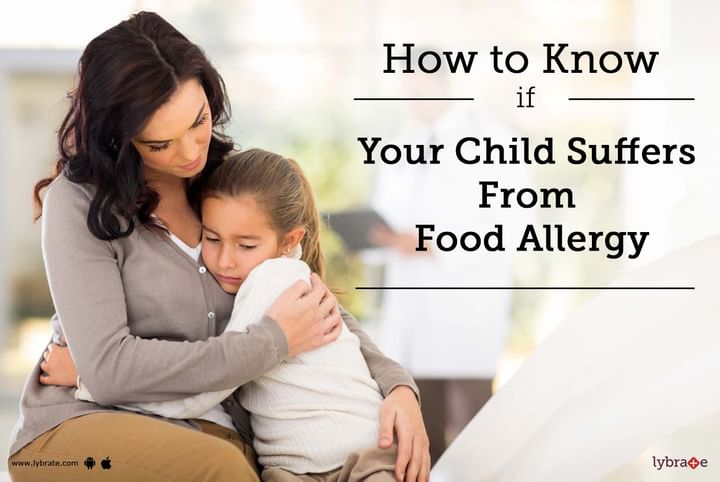How to Know if Your Child Suffers From Food Allergy
Your child is fond of nuts and has eaten a chocolate with nuts but shortly after that develops a skin rash and starts to itch. The rash may even spread to the surrounding area. This is an indication of food allergy to nuts.
What happens is simple - the body's immune system recognizes specific proteins in the food as harmful (antigens) and produces antibodies which can combat them. This leads to an allergic reaction which can vary from something as simple as a skin rash to severe breathing issues.
Though any child can develop food allergies, in most cases, there is a strong hereditary linkage. If parents have had a history of allergy to certain foods, then there is a strong likelihood that the child could have that food allergy too.
Some of the common foods that can cause allergies are as follows:
- Cow's milk
- Eggs
- Nuts (peanuts, walnuts, pecans, cashews or hazelnuts)
- Soy
- Wheat
- Fish (salmon, cod and others)
- Shellfish (lobsters, shrimps and others)
Of these, peanuts, seafood, and milk are the most common food stuffs that lead to allergies.
Because the child is yet to realize that he has eaten something that his system will not readily accept, the allergic reaction can be described in various ways, as below:
- Scratching or itching on the tongue
- Change in the voice - can become husky or hoarse
- Burning of the tongue
- Tingling of the tongue
- Funny feeling in the mouth
- Feeling of something stuck in the throat
- Itchy feeling or bugs in the ears
- Throat going thick
- Bump on the back of the tongue
These are some ways that a child can describe his allergic reaction. Some of the mild symptoms of a food allergy are as follows:
- Hives (red, swollen, itchy areas on the skin)
- Eczema of the skin (dry, itchy rash)
- Nasal congestion
- Sneezing
- Itching of the tongue and the mouth
- Nausea or vomiting
- Stomach pain
Severe symptoms include:
- Severe swelling of the lips and tongue that can block breathing
- Inability to swallow
- Difficulty breathing
- Turning blue
- Dropping of pulse
- Drowsiness
As the parent identifies a similar reaction when eating the same food item, they can suspect allergic reactions and immediately reach out to the doctor. A detailed discussion will help establish the causative agent. Once that is known, then avoiding food allergies is quite easy. In fact, a well-informed child will know that avoiding certain foods is very beneficial. This will improve the quality of life of the child, help avoid missing school due to allergic reactions, and help avoid the child (and the parent) suffering.



+1.svg)
